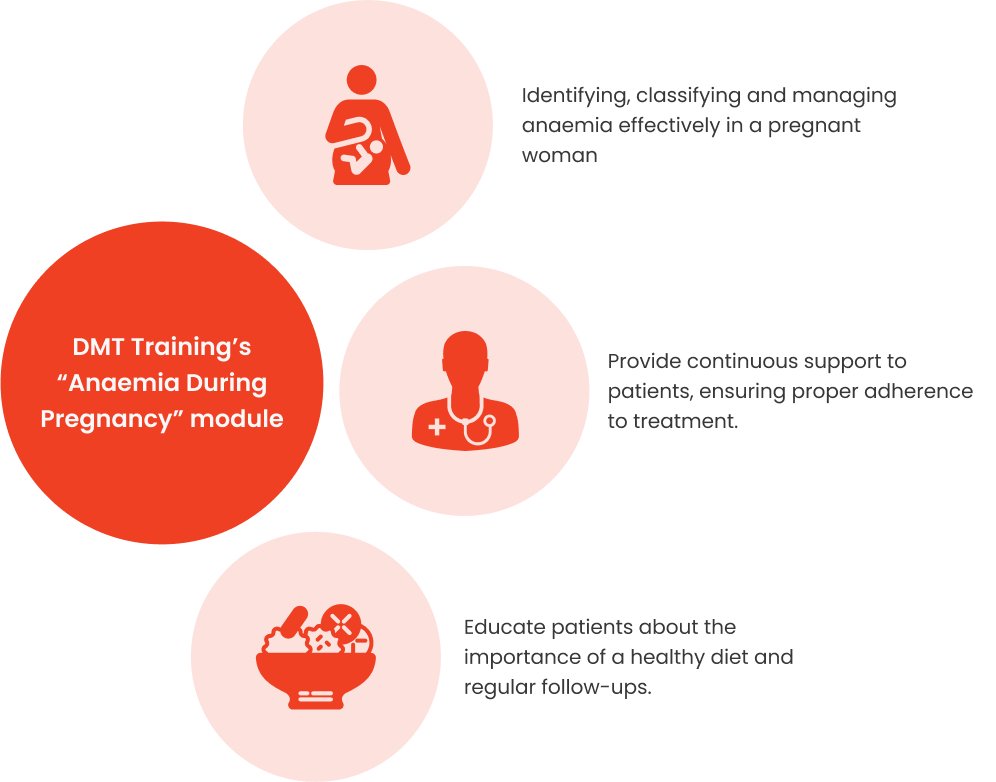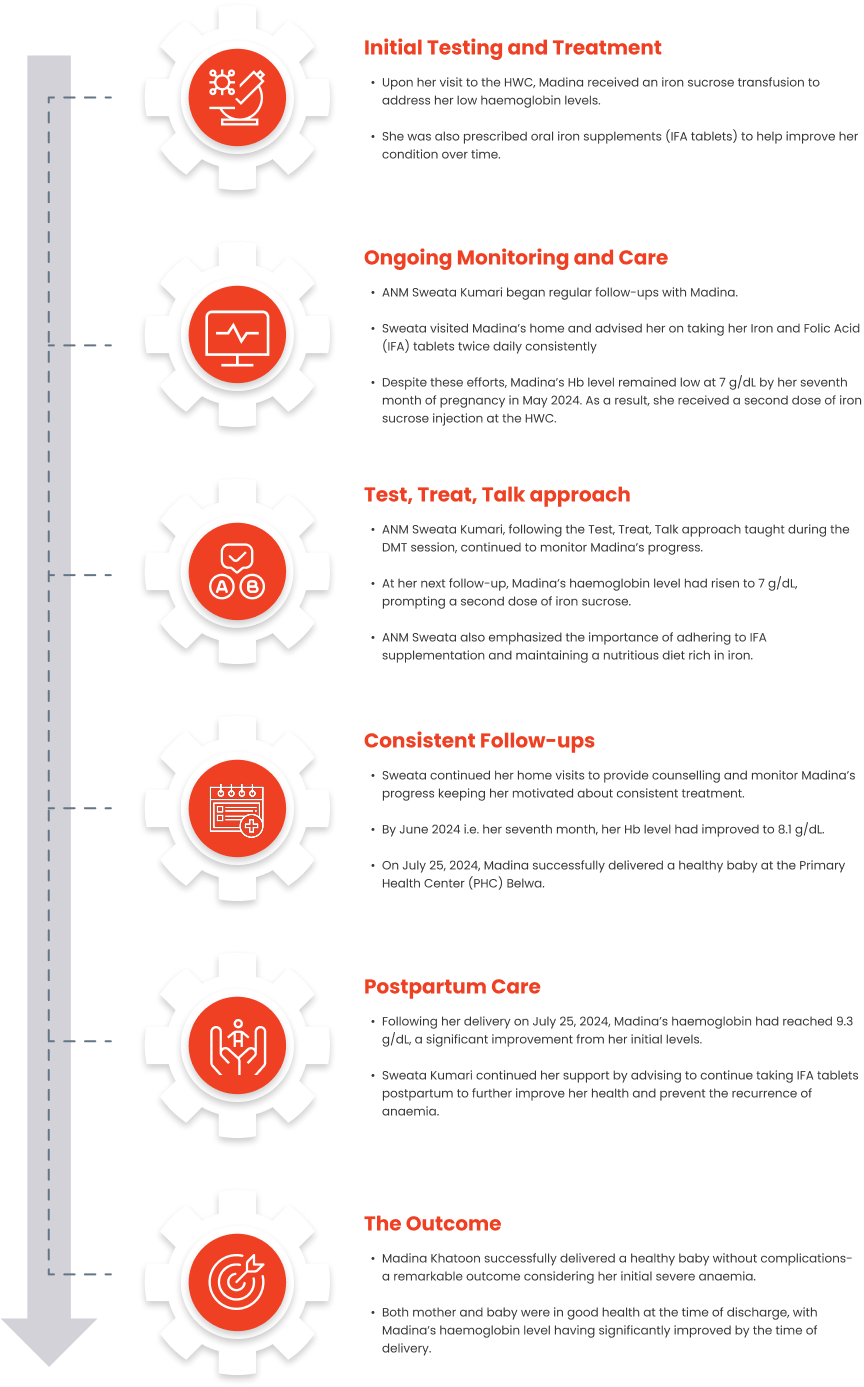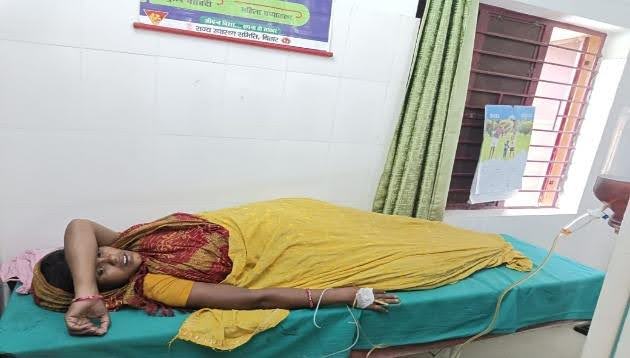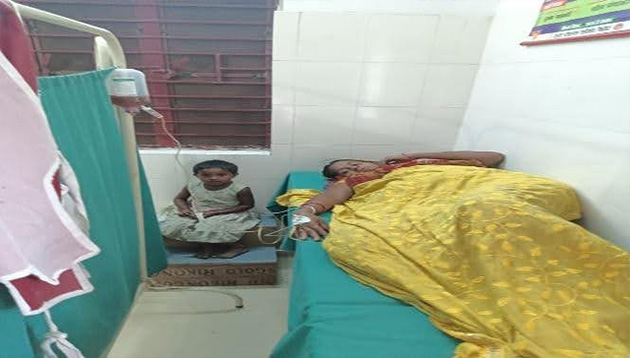Madina Khatoon (name changed), a housewife and mother of two in Kishanganj, Bihar, was in her third pregnancy when she first encountered severe fatigue and weakness. Unlike her previous pregnancies, this one proved more challenging. At four months pregnancy, she sought medical attention due to persistent weakness and was diagnosed with severe anaemia, with her haemoglobin level recorded at 6.2 g/dL. Her condition required immediate intervention.
A mother’s well-being and survival are vital not only for her but also for addressing wider economic, social, and developmental challenges. Essential maternal healthcare directly affects the health and wellbeing of both mother and her children, influencing the overall population’s health and nutritional status.
Maternal Health in India
The National Health Mission programme of the Indian government has placed a strong emphasis on enhancing maternal and newborn healthcare, which is well-aligned with the Sustainable Development Goal 3 that aims to reduce maternal, newborn and child mortality.
However, it has been an uphill task in Bihar as it performed well on some parameters such as immunization (71%, NFHS-5) and institutional delivery rates (76.2%, NFHS-5), but it currently performs inadequately with respect to another maternal parameters like antenatal care, delivery care and postnatal care. There is a need to substantially improve the coverage and quality of interventions, with a focus on outreach services, to significantly reduce mortality and morbidity in a relatively short term.
The role of primary caregivers in rural India
The primary care giver in the hard-to-reach rural area is the Auxiliary Nurse Midwife (ANM) who plays a crucial role in managing maternal health within the limited capabilities of the healthcare infrastructure. The frontline healthcare workers are the bridge that help connect the rural community to healthcare services. They are the health warriors who provide last mile services.
In rural Bihar, 63.9% (NFHS 5) pregnant woman were found to be anaemic as it is the most common and serious issue during pregnancy, which, if not detected and managed early, can lead to life-threatening complications for both the mother and the newborn.
Recognizing this, the District Mentoring Team Model initiative focuses on training frontline healthcare workers especially the ANMs to identify, screen, and manage anaemia during pregnancy, helping to improve maternal and child health outcomes in underserved regions.
This case study highlights the real-world impact of the Piramal Foundation’s capacity-building efforts, with a focus on the experience of ANM Sweata Kumari and her work with a patient, Madina Khatoon, in a remote community in Kishanganj district, Bihar.
DMT Training: The District Mentoring Team (DMT) Model Approach
The objective of the DMT Model is to establish a robust talent-development mechanism at the district level by creating a collaborative platform for ANMs engaged in outreach care. Through DMT sessions, ANMs will be equipped with comprehensive training, enhancing their skills and capabilities across multiple dimensions.
The training curriculum will encompass the competencies and skills necessary to effectively achieve the state’s RMNCAH&N (Reproductive, Maternal, Newborn, Child, Adolescent Health and Nutrition) goals. Priority will be given to urgent areas, such as preventing, identifying, and managing maternal complications like pregnancy-induced hypertension (PIH) and severe anemia.
The modules include a mix of technical, communication, managerial, and leadership skills, along with operational guidance on when and how to apply these skills for maximum impact. The program aims to strengthen participants’ knowledge, skills, and attitudes, ensuring they are well-prepared to deliver high-quality healthcare and achieve significant outcomes.

The T3 Approach
Rural India has deep-rooted cultural scepticism towards modern medicine. The focus is therefore made on breaking the social stigma and talk about the problems, create awareness and to bring patients closer to treatment procedures. The training’s emphasis on the T3 Approach (Test, Treat, Talk) in DMT training enables not only to treat but also educate and counsel pregnant women, ensuring long-term health benefits for both mother and child.
The Intervention
After being diagnosed with anaemia, Madina was referred to the nearest Health and Wellness Center (HWC) in Gachhpara, where she was attended by ANM Sweata Kumari, who had recently completed the DMT (District Mentoring Team) training organized by the Piramal Foundation team with support from the health department at district and Block level.



Humko kamjori mehsoos ho rahi thi, isiliye ANM didi se milne aye. Unhone kaha ki mera khoon kam hai isiliye raat mein khane ke liye iron ki goli di aur khoon badhan eke liye saline se injection chadhayi. Saline ke baad humko theek lagne laga. Baad mein ANM didi ghar bhi aati thi aur humko theek se khaan peenee ke liye kehti thi aur hamesha poochhti thi ki hum kitni goli khayein.
- Madina Khatoon
Madina said that she felt weakness during pregnancy for which she visited ANM at the Centre. The ANM informed her about her low haemoglobin levels and suggested iron tablets. She was given saline to improve the blood level after which she felt better. Later ANM didi would visit her at home and advised Madina on taking healthy diet and inquired about taking the iron tablets regularly.
Humko training se bahut labh hua. Pehle sirf anaemia ke baare mein pata tha, magar training mein pata chala ki anaemia ke teen prakaar hote hai aur teeno ka upchaar alag alag hai. Ab hum labharthiyon ko anaemia se sambandhit sasamay uchit dekhbhal, khaan pin ki salaah dete hein aur sahi samay par nirantar IFA tablets khane ki salah de paate hein.
- ANM Sweata Kumari, Kishanganj, Bihar
Sweata Kumari highlighted that the training enriched her understanding of anaemia management, especially the need to categorize the severity of anaemia and tailor the treatment accordingly.
Advocacy for Sustainability
Madina, deeply grateful for the care and support she received, is now actively involved in raising awareness about maternal health in her community. She shares her experience with other pregnant women, encouraging them to seek regular medical support and follow proper treatment protocols to avoid complications like anaemia.
Acknowledgement
We are highly grateful to the main characters of the case study for sharing their experiences freely and agreeing to publish their narrative. This case study would not have been possible without Jacinta Lepcha (Program Manager), the team member from the Kishanganj district team whose encounter with the beneficiary at the government facility helped her to identify the possibility of a successful case study. Jacinta was tenacious enough to contact the said ANM and record her verbatim where she shared her learnings from DMT Training and the impact the training had on her service delivery.
We are equally grateful to our Public Health team member Neeraj, who followed up with Jacinta on the newer updates of the case. The other PH team members actively provided their valuable feedback on the case study.
Last but not the least, we would like to thank the communications team for guiding us on the flow and structure of the case and enhancing the layout to make it more engaging.
Conclusion
The Piramal Foundation’s capacity-building initiatives, particularly the DMT model, have been rolled out in 19 districts, DMT members have trained 1447 colleagues (ANM, GNM, CHO) on “Anaemia During Pregnancy” module with the support of SOH field team in 41 blocks in Bihar in the year 2024.. Through targeted training for ANMs, the foundation has created a network of skilled healthcare workers who can detect, treat, and manage anaemia, contributing to healthier pregnancies and reduced maternal mortality.
The success of Madina Khatoon’s pregnancy is a testament to the effectiveness of this approach, highlighting the critical role of empowered healthcare workers in bridging gaps in maternal care in rural communities. By scaling these training programs, the Piramal Foundation has the potential to impact the lives of thousands of women across underserved regions, ensuring healthier pregnancies, safer deliveries, and brighter futures for both mothers and children.
TAGS
SHARE





